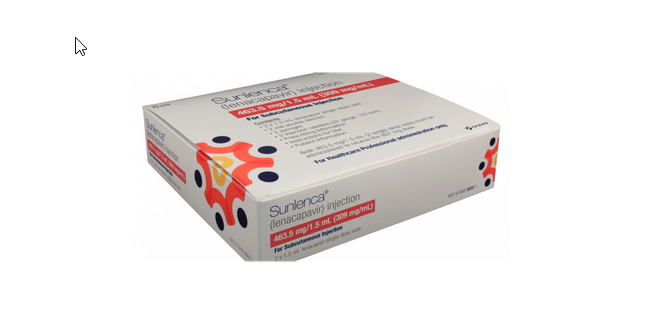The fight against HIV has reached a pivotal moment with the development of Lenacapavir, an injectable medication that promises to transform prevention methods. Unlike the daily oral pills currently in use, this innovative drug requires just two injections a year and has demonstrated astonishing effectiveness in preventing HIV infections.
Daily oral medications like Truvada, part of the widely adopted Pre-Exposure Prophylaxis (PrEP) regimen, have been highly effective in reducing the risk of HIV infection. However, their success depends on strict adherence, which remains a challenge for many individuals. Gaps in the routine of daily doses can compromise their efficacy, leaving users vulnerable. This is where Lenacapavir offers a more practical and reliable alternative.
In the Purpose-2 trial led by Emory University and Grady Health System, Lenacapavir reduced HIV infections by an impressive 96%. The study, which enrolled over 3,000 participants across 88 sites worldwide, showcased Lenacapavir’s superiority over daily oral medications. In the group receiving Lenacapavir, only two new HIV infections occurred, compared to nine in the group taking Truvada.
Dr. Colleen Kelley, a lead investigator, highlighted that this long-acting injectable can potentially overcome adherence challenges faced by traditional PrEP users. “For many, daily medication routines are difficult to maintain. Lenacapavir offers a simpler, more effective solution,” she stated.
HIV continues to disproportionately affect marginalized communities, including Black and Hispanic populations, cisgender gay men, and individuals with limited access to healthcare. These groups often face barriers that prevent consistent use of daily PrEP. Lenacapavir’s twice-yearly schedule provides a lifeline, offering long-term protection without the daily burden.
The trial prioritized diversity by including US, South America, Africa, and Asia participants. Efforts were made to accommodate diverse languages and cultural needs, ensuring that underrepresented groups had equal opportunities to benefit from this breakthrough.
Grady Memorial Hospital in Atlanta played a pivotal role in the trial, emphasizing the importance of equitable access to life-saving innovations. Lenacapavir’s potential to make a profound impact on global HIV rates hinges on making the drug widely available. Dr. Carlos del Rio of Emory University underlined this point, stating, “Long-acting antiretrovirals like Lenacapavir could dramatically reduce HIV infections if accessible to all.”
This focus on inclusion extended to a prior study involving women and adolescent girls in Africa, where Lenacapavir achieved 100% effectiveness. Such results demonstrate the drug’s potential to empower populations most at risk of HIV.
Despite its impressive benefits, Lenacapavir comes with a hefty price tag of $40,000 per person annually, posing a significant barrier to widespread adoption. However, a ray of hope emerges as Indian pharmaceutical giants Dr. Reddy’s Laboratories and Emcure Pharmaceuticals prepare to produce generic versions of the drug.
Through agreements with Gilead Sciences, the manufacturer of Lenacapavir, these companies will manufacture and distribute the medication to 120 low- and middle-income countries. Pending regulatory approvals, this initiative aims to provide affordable access to regions struggling with high HIV rates.
The approval of Lenacapavir, expected by 2025, marks a monumental step in HIV prevention. Its innovative approach has the potential to address long-standing challenges in managing the epidemic. The ability to provide effective, long-lasting protection could drastically reduce new infections, particularly in resource-limited settings where adherence to daily medication is less feasible.
However, experts stress that affordability and accessibility must remain central to these efforts. Without addressing the cost barrier, the transformative potential of Lenacapavir may remain out of reach for those who need it most.
As HIV prevention enters a new era, Lenacapavir represents a beacon of hope for millions. This twice-yearly injectable not only simplifies the process but also redefines the possibilities for combating the global HIV epidemic. Its success story underscores the importance of innovation, inclusion, and equitable access in addressing public health challenges.
While hurdles like cost and regulatory approvals remain, the collaboration between pharmaceutical companies and healthcare advocates offers a promising path forward. The journey of Lenacapavir serves as a powerful reminder of the importance of persistence and partnership in the fight against HIV.
As we stand on the brink of a significant breakthrough, the challenge lies in ensuring that this innovation reaches everyone, regardless of socioeconomic status. With continued research, advocacy, and collaboration, Lenacapavir could lead the way for a future where HIV infections are no longer a global crisis but a chapter in history.

 Lenacapavir could lead the way for a future where HIV infections are no longer a global crisis but a chapter in history.
Lenacapavir could lead the way for a future where HIV infections are no longer a global crisis but a chapter in history.










.jpeg)


.jpeg)
.jpeg)
.jpeg)
_(1).jpeg)

_(1)_(1)_(1).jpeg)
.jpeg)
.jpeg)
.jpeg)








.jpeg)
.jpeg)